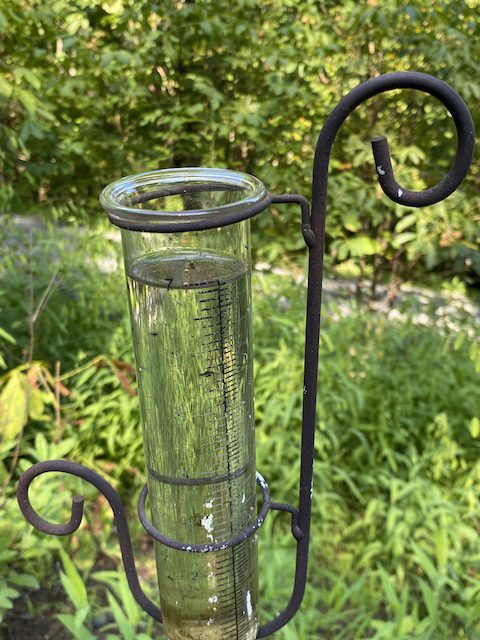Last week, I wrote about transformation, saying, “Perhaps the most dramatic transformation story in the Bible is Saul’s Road to Damascus experience: struck blind by a heavenly light after hearing the voice of Jesus, this devout persecutor of Christians became Paul, a devoted follower of Jesus. Paul’s lifelong mission: to spread the gospel. So, must our own transformation be.”

Here is a revision of a post I wrote in late August 2020 – perhaps apropos today, as daily rain continues, bringing cucumber blessings and flood challenges – yes, that’s 7 inches measured from last week.
The perhaps of uncertainty
While the remnants of hurricane Laura soaked the forest on Saturday morning, I sipped green tea and finished Janine Urbaniak Reid’s memoir The Opposite of Certainty. Reading about her brush with alcohol abuse in her teens and early twenties, I thought about the inactivity or useless activity some have noted on social media during these months of stay-at-home quarantine.
There’s plenty to do around here, so inactivity isn’t a problem. But I’ve turned off the bake oven and put away wine glasses, because useless activity is often self-indulgent and born out of a desire to control. And I’m already a control freak like Reid defaulted to after she quit drinking. What she could not control was her younger son’s brain tumor.
I have not been so sorely tested, at least not yet, thank God. But in some ways, all of us are facing the inactivity/useless activity/desire to control test now, as noted in Todd Brewer’s post on Mockingbird Ministries. Why go to school, get married, have children, or do anything during this time of uncertainty? Let’s just wait till this is all over and certainty returns; then we’ll get back to normal.
The perhaps of possible certainty
In 1939, the beginning of World War II in England, C.S. Lewis had this to say about certainty:
The war creates no absolutely new situation; it simply aggravates the permanent human situation so that we can no longer ignore it. Human life has always been lived on the edge of a precipice. Human culture has always had to exist under the shadow of something infinitely more important than itself. If [people] had postponed the search for knowledge and beauty until they were secure, the search would never have begun. We are mistaken when we compare war with “normal life.” Life has never been normal.
We have never been in control and never will be. The only possible certainty we have is God. If we suspend useful activity, we’ll likely substitute “a worse cultural life for a better,” and who isn’t seeing some of this happening now? But fixating on potential threats should not preclude other worthy pursuits.
The perhaps of conditional hope
As Jeremiah prophesied to Israel after the LORD carried them into exile from Jerusalem to Babylon: “Build houses and settle down; plant gardens and eat what they produce. Marry and have sons and daughters; find wives for your sons and give your daughters in marriage, so that they too may have sons and daughters. Increase in number there… Jeremiah 29:5-6a (NIV)
We may have a duty worth dying for, C.S. Lewis noted. But if we devote our entire lives to that duty and cease all other activities, the duty is not worth living for.
Reid discovered this truth as she gave full attention to her younger son’s life to the detriment of her health, marriage, and two other children. A duty worth dying for—she would have gladly given her life for her son’s—but not worth living for. With time, she learned to live in the present, one day at a time, as recovering alcoholics and recovering control freaks must learn.
Todd Brewer wrote: “Our lives may have been altered, but God remains the unchanged. Grace does not wait for the perfection conditions, but comes to us when we least expect it. As Lewis reminds us, ‘The present is the only time in which any duty can be done or any grace received.’ This time we have now is such a gift.”
The perhaps of conditional hope.
Linkup with Five Minute Friday.



Amen, C.D. Thank you for reminding us of God’s unchanging mercy and grace. God bless you!
God bless, too, Karla!
Thank you!
Mrs Reid is a cautionary tale for me. I have focused my life on my son as his poor choices have him trapped. I need to let go. There is nothing I can do for him. I need to give everything to God.
So good to hear from you, dear. I share your challenge. Praying for you. Carole